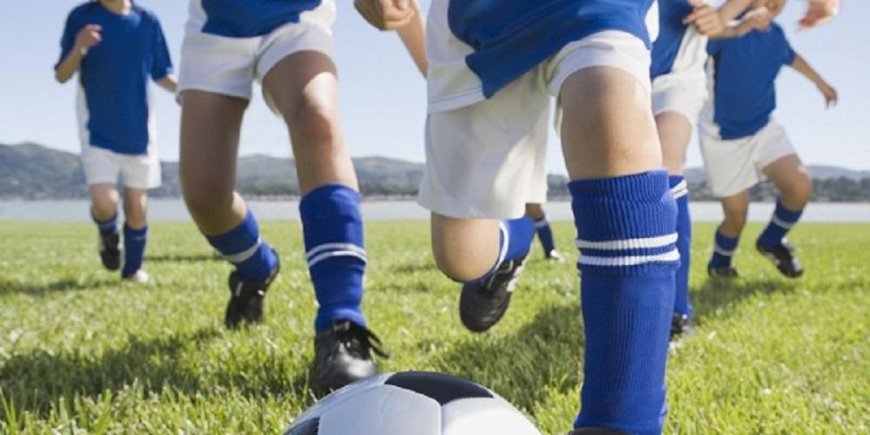The role of psychology in youth football
that the child's environment plays in this sport. Find out about other benefits in our article! role of psychology in youth football.

Psychology is an essential part of youth soccer. It helps to analyze the role that the child's environment plays in this sport. Find out about other benefits in our article! role of psychology in youth football.
Do you know how important the role of psychology in youth football is? It helps to analyze the role that the child's environment plays in this sport. The behavior of parents, the methods used by coaches and the attitude of children are among the pillars of youth sport. The ultimate failure or success of a youth soccer team depends on these pillars.
Football is the most popular sport in the world. Millions of people enjoy it on soccer fields or in the media. In addition, everyone has their own opinion about this game. This applies to the audience, fans, journalists, players and coaches.
Consequently, it is a sport with enormous social and economic impact, whether it is professional, competitive or youth soccer.
The role of psychology in youth football
In the last few years, the importance of youth football has grown. It has also become an area of ‹‹interest in applied sports psychology. Due to its characteristics, it can be a great tool for parents who are trying to raise their children in a healthy and appropriate way.
Many youth sports teams use psychologists to develop their sports strategies. They also help establish effective communication techniques between players. In addition, psychologists can develop appropriate rules of conduct.
These can be of great help to young children as they deal with success and failure on the ground.
Why is psychology important in youth soccer?
Psychologists and coaches are often more favorable to psychological development in youth sports than results. Many believe that the goal should be to enjoy sports, build healthy living habits, and communicate values.
Nevertheless, some soccer fans disagree with this perspective. They argue that doing so contradicts the essence of sport. They believe that healthy competitiveness should be encouraged. The pitch is one of the best places to build this quality.
For kids, playing soccer is more than just fun. It's more like going on stage and playing a very important role. If they win and are good at the game, they know they will gain the admiration and praise of their parents, coaches and teammates. Needless to say, it can also lead to you feeling a lot of pressure.
Must Read: This is how J.K. Rowling after the firing of Johnny Depp from Fantastic Beasts 3
Sports psychologists are usually more interested in instilling values ‹‹in their players. At the same time, they train the mentioned players in techniques and tactics. They know that a child who has learned the importance of effort during training will be more prepared to give their best while playing.
It will also be like that during a real match. Nevertheless, most sports psychologists always downplay the importance of the results.
The Role of Psychology in Soccer - Five Keys to Success in Youth Soccer
Sports psychologists know the importance of encouraging children to adopt certain values ‹‹in sports. When they do this, they prepare them for something much more than just scoring. They provide them with life training.
Below we take a look at the main areas that youth soccer psychology focuses on:
- Personal effort
One of the basic ideas sports psychologists instill in their players is that you will not achieve any goals without effort. It is important for children to realize that persistence and hard work lead to self-development. They also contribute to the success of the entire team.
The lack of individual willpower can lead to the collapse of the entire group. In order to face difficulties, it is important to generate this basic internal energy. Each team sport will require challenges and sacrifices.
- Team work
Sports psychologists should teach children to face the humble reality that no one is irreplaceable. In a team, everyone works towards a common goal. Teaching this concept should be part of their daily training.
Football requires teamwork. Every team knows they have a group goal where they can only be successful with the effort of each player.
- Increase your self-esteem
Sports psychologists create personalized and team plans to increase self-esteem early in the season. The key to achieving this is the intelligent group work to achieve the goal.
- Building empathy
Working on a trait like empathy is one of the most difficult challenges for sports psychology. This is because it is very difficult to teach children what it means to put yourself in another person's shoes.
Empathy makes people understand more, are community-oriented, generous and, above all, better at teamwork. Therefore, using soccer to develop empathy can be very beneficial for young people.
- Teaching respect
Some rules in football are non-negotiable. For example, prohibition of physical or verbal violence, and respect for other players. With this as a basis, the team can then follow the democratic process of establishing the rest of the rules. Nevertheless, respect should always be inherent in each of them.
Model characters such as parents, coaches, and educators should also behave respectfully. They should always remember that they are role models for young children.
Overall, psychology can turn youth soccer into more than just a sport. With this toolkit, coaches can use the sport to instill positive values ‹‹in children. They can also use it to teach children how to be better people and create a society with more respect.
